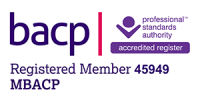What types of therapy are used for couples therapy?
Various therapeutic approaches are used in couples therapy. Some of the most common approaches are outlined below. However, the therapeutic approach is generally less important than the relationship with the therapist – it is advisable to choose a therapist based on how you feel in the room with them, more than their theoretical approach.
Cognitive behavioural therapy
A cognitive behavioural approach focuses on changing unhelpful thoughts and behaviours. It often incorporates structured exercises, such as keeping a mood journal or identifying automatic thoughts. These are the thoughts that we jump to in a fraction of a second, often triggered by our partner saying or doing something that touches a nerve. They can lead us to feel emotions like hurt, anger or despair.
Couples counsellors teach their clients to identify the thoughts and behaviours that are getting in the way of them having healthy relationships. Couples can then challenge and change their own thoughts and behaviours, as well as requesting changes in behaviour from each other.
Cognitive behavioural techniques are particularly effective when a couple’s relationship problems stem from cognitive distortions. These are patterns of thinking that don’t accurately reflect reality. Examples include:
- Catastrophising – assuming that the worst is going to happen, eg She’s bound to cheat on me like all the others have.
- Mind reading – one partner thinking that they know what the other person is thinking, eg He thinks I’m stupid.
- Should statements – thinking that something should be a particular way, eg A marriage should be harmonious at all times.
- Magical thinking – believing that things will improve as if by magic, eg All we need is for her to get this new job, then everything will be okay.
Each of us tends to have particular cognitive distortions that we use more than others. Some of us are catastrophisers, some are inclined to mind read, and so on. Through relationship counselling, each partner can learn which distortions they habitually use and endeavour to correct their distortions.
Of course, habitual thoughts and behaviours such as these don’t just affect intimate relationships. Many people find that what they learn in their couples therapy sessions not only helps their relationship with their partner; it also helps in other areas of their life. For example, it may improve their self confidence, relationships at work, wider family life, self-esteem, and so on.
Psychodynamic therapy
A psychodynamic approach explores how a couple’s ways of relating to each other are influenced by their past relationships, particularly those with parents or caregivers.
So if a partner catastrophises, for example, a psychodynamic therapist will go beyond identifying that and challenging the distortion; they will unpick where the tendency to catastrophise has come from. Perhaps they learnt it from a parent who themselves always feared the worst; or perhaps it was a coping mechanism developed when life with an alcoholic parent was intolerably unpredictable.
The psychodynamic therapist pays attention to how each partner relates to them, the therapist. Since we tend to use similar patterns of relating across all our relationships, this gives the therapist clues as to what might be causing problems in the couple’s relationship.
For example, if the therapist feels inclined to mother one partner, this suggests that a similar dynamic is at work in the couple’s relationship, with that partner subtly prompting the other to look after them.
Or if a client repeatedly challenges the therapist, cancels appointments and often turns up late, that suggests the client does the same in the couple’s relationship. They unconsciously behave in ways that make it hard for their partner to stay in the relationship with them, possibly because they fear getting hurt, so they sabotage the relationship instead.
When the therapist points this pattern out to the client and highlights how it actually creates the hurt they are trying to avoid, they bring it from the client’s unconscious mind to their conscious mind. Once it becomes conscious, it is easier for the client to change.
The relationship between the clients and the therapist can also be a useful – and safe – space to practice new behaviours. The client who pushes people away by cancelling and so on, can try out being more present in the relationship, turning up reliably and letting the therapist in. This will likely feel uncomfortable and possibly scary to the client at first, but the therapist will be able to stay alongside them and help with the discomfort while the client gradually gets used to this new, healthier way of relating.
A psychodynamic therapist may also explore the couple fit – what each partner unconsciously hoped to resolve by entering into a relationship with the other. We have an unconscious drive to recreate problematic relationships from our past and get it right this time. So we choose partners with similarities to people from our past, usually our parents, in the hope that we can get it right with them.
Unconsciously, we think things like This time my critical father (partner) will give me the praise I crave or This time my disinterested mother (partner) will find me interesting, and so on. Those characteristics (the very reasons that we have chosen our partners!) then infuriate us because they are the things that we are most sensitive to. We react to them with the anger or hurt that has built up over many years in our relationships with our parents.
By exploring this in the counselling sessions, the therapist helps the couple to bring these unconscious processes into consciousness. The couple can then gradually separate their perceptions of each other from their perceptions of their parents.
Integrative couples therapy
This is probably the most common form of couples therapy in the UK. Integrative couples counsellors draw on a range of theories and techniques to best suit their clients needs.
With their training in multiple approaches, the integrative therapist can offer cognitive behavioural exercises to clients who like to be given homework, explore psychodynamic concepts with those who want to dig into links with their childhoods, and so on. And of course, an integrative therapist may bring several different approaches into their work with a single couple, as required at different stages in the course of therapy.
Attachment-based therapy
Attachment theory grew out of psychodynamic ideas. It is a theory of how the relationships between us and our caregivers when we were infants shape our ways of relating as adults.
When a parent responds sensitively to their baby’s emotions and needs, the baby feels secure, and this helps the baby to feel good about themselves and develop healthy relationships with others. If a parent ignores their baby’s emotions and needs, responds only sometimes or responds inappropriately (for example getting angry with a baby that cries), the baby feels insecure and this affects their ability to develop relationships with others.
In this way, we develop different styles of attachment based on how attuned and responsive our infant caregivers are to us, and we carry those attachment styles with us into adult life. An attachment-based therapist will help clients understand their attachment styles and how they impact on the couple’s relationship.
Systemic or family therapy
Systemic therapy is often associated with family therapy, as it can be helpful for understanding the complex dynamics of multiple people living together. But it is also a helpful approach for looking at couple relationships.
The systemic approach considers problematic behaviours to exist not in the individuals, but in the relationships between the members of the family or the couple. It considers what the other members of the family system may be doing to encourage the problematic behaviour and how they respond when it happens.
It can be very hard for a person to change their own behaviour when the people around them aren’t changing the things they do to provoke or reward that behaviour. Addressing a problem in systemic couples therapy therefore requires both partners to make changes simultaneously.
Imago relationship therapy
Like psychodynamic therapy, Imago relationship therapy focuses on childhood experiences and how they impact both our choice of partner and the relationship that develops with them. It explores how each partner’s image (or Imago) of love and how to behave in relationships developed in childhood.
Conflicts within the relationship are seen as opportunities for the partners to grow. Imago therapists encourage their clients to communicate clearly, understand each other’s childhood wounds and help each other to heal.
Emotionally focused therapy
Emotionally focused therapy (or EFT) recognises our need to develop secure attachments to others, and the difficult emotions that arise when a person feels disconnected from their partner. An EFT therapist will help couples to recognise these moments of disconnection and explore how they respond to them.
Often, these moments lead to dialogues that can escalate, thus increasing the disconnection. EFT helps couples to change that pattern, by recognising their need for attachment and learning to communicate in ways that bring them closer.














